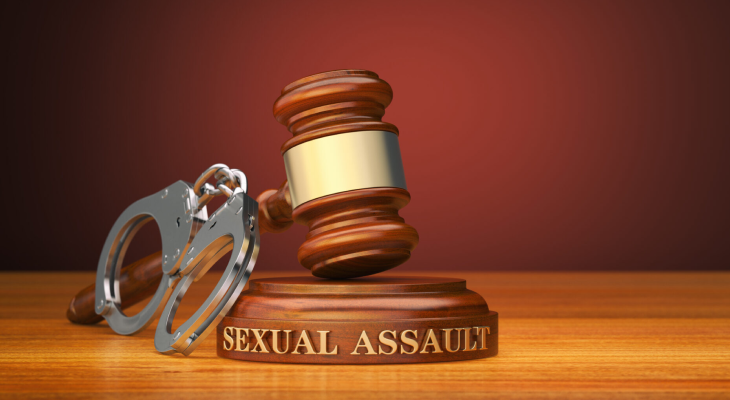
Facing a sexual assault charge is one of the most serious and stressful situations a person can experience. In these cases, every aspect of the defence strategy matters, including the potential role of character evidence.
Many people wonder if presenting proof of good character or community standing can influence the outcome of their case.
This guide explores how character evidence works in Canadian criminal law, its risks and benefits, and why working with an experienced sexual assault defence lawyer in Edmonton is essential when navigating these complex issues.
What Is Character Evidence in Criminal Law?
Character evidence refers to information presented in court about a person’s reputation, conduct, or personal traits. In criminal proceedings, it can include testimony from employers, colleagues, or community members who describe the accused as honest, law-abiding, or responsible.
It may also involve documents or records that highlight a person’s positive contributions to society, such as volunteer work or stable employment.
In theory, such evidence may suggest to a judge or jury that it is less likely for the accused to have committed the offence. However, Canadian courts approach character evidence cautiously.
Unlike direct evidence such as DNA or surveillance footage, character evidence does not directly prove or disprove the charges. Instead, it is treated as supplementary information that may provide context.
When Is Character Evidence Allowed in a Sexual Assault Case?
The admissibility of character evidence depends on strict legal rules. In Canada, evidence must be relevant, reliable, and not unfairly prejudicial to be considered. Positive character evidence may be allowed in certain circumstances, but it is not automatically accepted.
For example, if an accused has a long-standing reputation for honesty or respectfulness in their community, a judge may allow testimony supporting that reputation. Similarly, records of employment stability or community leadership roles might be considered.
However, character evidence is often excluded if it risks distracting the court from the central issues of the case. Judges may refuse to admit it if they believe it could unfairly sway the jury’s emotions rather than focus attention on the facts.
This means the decision to use character evidence requires careful analysis of how it may affect the overall defence.
How Can Character Evidence Help a Defence Strategy?
While character evidence is not a guarantee of success, it can play a valuable role in creating reasonable doubt. By presenting evidence that the accused has consistently acted with integrity, the defence may suggest that the alleged behaviour is inconsistent with their established character.
For instance, testimony from long-term employers or respected community figures can help the court see the accused in a broader context beyond the allegations. In cases where credibility is central, such as when the outcome depends on the word of the accused versus the complainant, strong character evidence may strengthen the defence.
Character evidence can also complement other aspects of the case. When combined with challenges to witness credibility, questioning of police procedures, or identification of inconsistencies in testimony, it may reinforce the overall argument for acquittal.
Risks of Relying Too Heavily on Character Evidence
Despite its potential benefits, character evidence carries significant risks. Once character evidence is introduced by the defence, the prosecution may gain the right to cross-examine that subject. This could open the door to negative information about the accused, including past incidents that might otherwise have remained inadmissible.
For example, if the defence highlights the accused’s reputation for honesty, the prosecution may present evidence intended to undermine that claim. This can turn what seemed like an advantage into a liability.
Because of these risks, relying solely on character evidence is rarely effective. It must be carefully balanced against the possibility of exposing the accused to damaging information.
A sexual assault defence lawyer evaluates these factors and decides whether character evidence strengthens or weakens the case.
Alternatives to Character Evidence in Defence
In most sexual assault cases, defence strategies extend far beyond character evidence. Lawyers typically focus on legal and factual arguments that directly address the charges. Some common alternatives include:
- Challenging witness credibility: Identifying inconsistencies, contradictions, or motives that affect reliability.
- Examining police procedures: Questioning whether the investigation was conducted lawfully and thoroughly.
- Highlighting insufficient evidence: Emphasizing gaps in the prosecution’s case that fail to meet the burden of proof.
- Exploring alternative explanations: Presenting evidence that challenges the narrative of the events.
These approaches often carry more weight in court than character evidence because they address the allegations directly. A skilled defence lawyer combines multiple strategies to ensure the accused receives the strongest possible representation.
Why You Need a Sexual Assault Defence Lawyer in Edmonton
Deciding whether to use character evidence in a sexual assault case is never simple. Each case involves unique facts, legal considerations, and potential consequences. A knowledgeable sexual assault defence lawyer in Edmonton provides the guidance necessary to make these difficult decisions.
A lawyer can evaluate the potential benefits and risks of introducing character evidence, ensure compliance with evidentiary rules, and integrate it into a broader defence strategy. Most importantly, they protect the rights of the accused at every stage, from bail hearings to trial.
Without professional guidance, individuals may unintentionally harm their case by presenting evidence in a way that allows the prosecution to introduce damaging information. Working with an experienced defence lawyer ensures that all legal options are considered and that the chosen strategy is carefully tailored to the circumstances.
About Us
Slaferek Law is an Edmonton-based criminal defence firm focused on representing individuals facing serious assault-related charges, including sexual assault and domestic assault. Our firm understands the challenges and stress that come with defending against such allegations and is committed to providing strong, experienced legal representation.
If you or someone you know is facing sexual assault charges, professional help is critical. Contact Slaferek Law today to discuss your case and explore your legal options.
